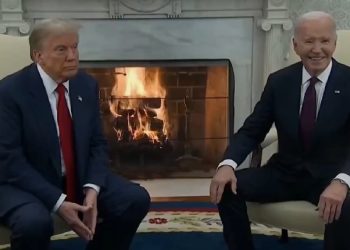New Delhi: Russian energy major Rosneft has announced the discovery of a huge oil deposit on the shelf of the Pechora Sea flowing from the Ural Mountains to the Arctic Ocean in the northwest of Russia.
Containing an estimated 82 million tonnes of oil, it is believed to be one of the largest discoveries on the Russian shelf in recent times.
“The field was discovered based on the results of drilling a prospecting and appraisal well at the structure of the same name in the Medynsko-Varandeysky license area. The work was carried out by specialists from RN-Bureniye and RN-Shelf-Arktika (part of Rosneft) using advanced Russian equipment and in accordance with the highest standards of industrial safety and environmental protection. The resulting oil is light, low-sulfur, low viscosity,” the company said in a statement recently.
As geological explorations continue in the region, the latest discovery comes at a time when the Western countries remain committed to phase out dependency on Russian energy, including by phasing out or banning the import of Russian oil, due to the ongoing conflict in Ukraine.
With Finland and Sweden set to join the North Atlantic Alliance – which Russia says will bring the “Collective West” to its doorstep – it will also be interesting to see how countries manage the natural assets of the Barents Euro-Arctic region.
India, meanwhile, too will be watching the developments closely given its robust and growing bilateral energy cooperation which is a key pillar of the special partnership with Moscow.
Not only that, New Delhi has highlighted the development of the Arctic and the Northern Sea Route, which passes through Pechora Sea waters, through the promotion of investment and trade linkages. India sees the Northern Sea Route becoming a major shipping lane in future.
Russia is the largest investor in India’s oil and gas sector with India encouraging further investments by Russian companies, including Rosneft, GazpromNeft and Sibur.
Indian public sector companies too have made investments in Russia of about US$ 16 billion, including in the Far East and East Siberia, in oil and gas assets such as Sakhalin-1, Vankor and Taas-Yuryakh.
“India is very interested in such large deposits as ours on the Arctic shelf. Relevant negotiations are underway with the Indians. Gazprom is already supplying liquefied natural gas to India. As part of the visit of Russian President Vladimir Putin last year in December, Rosneft and the Indian company Indian Oil Corporation also signed a major contract for the supply of oil to India. Indian companies own half of the share in the development of the Vangkor field,” Denis Alipov, the Russian Ambassador to India, had said in an interview to Russia Today in February.
Moscow and New Delhi also continue to have “promising interactions” on the development of maritime trade routes.
“The Indian side is showing undoubted interest in the Northern Sea Route. For our part, we plan that by 2035 the NSR will become a global transport corridor that will connect the Asia-Pacific region with Europe and ensure efficient and safe transportation of goods. It is 40 per cent shorter than the route through the Suez Canal and makes it eight days faster from the largest ports in the Asia-Pacific region to Rotterdam,” Alipov had commented during the interview.



















